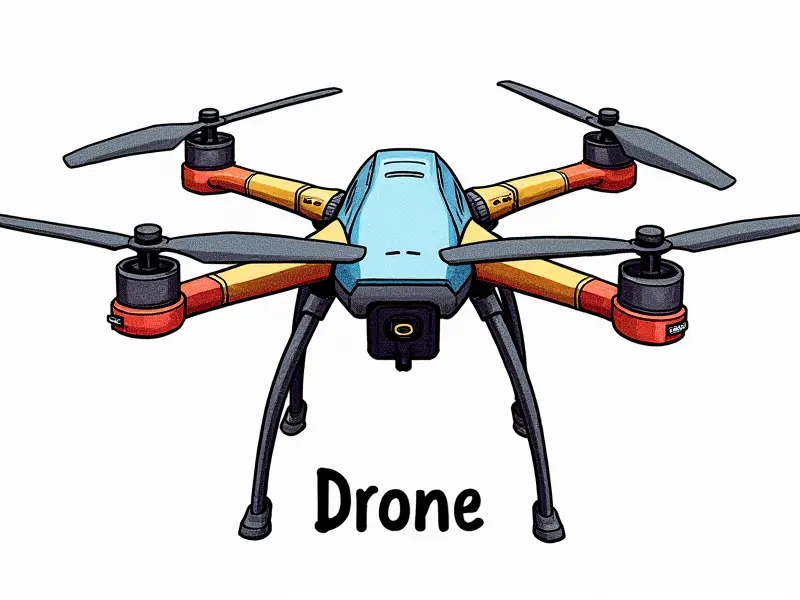Why is GPS important for drones?

How GPS Enhances Drone Performance
The integration of Global Positioning System (GPS) technology into drones has revolutionized the way these unmanned aerial vehicles operate. By leveraging satellite signals, GPS enables precise positioning and navigation capabilities that significantly enhance drone performance in various applications such as agriculture, surveying, and delivery services.
Boost Your Drone's Capabilities with GPS
GPS technology provides drones with a robust framework for autonomous flight operations. It allows drones to maintain stable hover points, track their position relative to the ground, and navigate complex environments without human intervention. This capability is particularly crucial in scenarios where real-time data collection or continuous monitoring is required.
Essential Benefits of GPS for Drones
The benefits of incorporating GPS into drone systems are numerous:
- Precision: GPS ensures that drones can maintain accurate positions, which is vital for tasks such as aerial photography and crop monitoring.
- Safety: By providing real-time location data, GPS helps prevent collisions with obstacles or other aircraft, enhancing overall flight safety.
- Efficiency: Drones equipped with GPS can cover larger areas more quickly and effectively than manually controlled drones.
Precision Flying: Why GPS is Crucial
The precision offered by GPS is one of the most significant advantages for drone operators. In industries like agriculture, where every inch of land matters, GPS enables drones to capture detailed images or data with pinpoint accuracy. This level of detail can help farmers optimize crop yields and reduce waste.
Navigating Drones Effortlessly with GPS
GPS technology simplifies the navigation process for drones by providing them with a constant stream of location information. This allows drones to follow pre-programmed flight paths or respond dynamically to changing conditions, such as avoiding obstacles or re-routing due to weather changes.
Maximizing Drone Efficiency with GPS
The efficiency gains from using GPS are substantial. Drones can cover vast areas in a fraction of the time it would take for manual operation. This is particularly beneficial in applications like land surveying, where large tracts of land need to be mapped quickly and accurately.
The Role of GPS in Drone Navigation
GPS plays a central role in drone navigation by providing critical data such as altitude, latitude, longitude, and speed. This information is used to calculate the optimal flight path, maintain stability during flight, and ensure that the drone remains within designated operational boundaries.
Understanding the Importance of GPS for Drones
To fully appreciate the importance of GPS in drones, it's essential to understand how this technology works. By receiving signals from multiple satellites, a drone can triangulate its exact position on Earth. This process is continuous and allows for real-time adjustments to ensure accurate navigation.
Enhancing Drone Flight with GPS
The integration of GPS into drones enhances flight capabilities in several ways:
- Autonomous Operation: Drones can operate independently, following pre-set routes or responding to changing conditions without human intervention.
- Data Collection: High-precision GPS enables the collection of detailed data for applications such as environmental monitoring and infrastructure inspection.
GPS: Essential for Safe Drone Operations
Safety is a paramount concern in drone operations, and GPS plays a crucial role in ensuring safe flights. By providing real-time location information, GPS helps drones avoid collisions with other aircraft or obstacles, reducing the risk of accidents.
Why GPS is Crucial for Modern Drones
In today's rapidly evolving technological landscape, GPS has become an indispensable component of modern drone systems. Its ability to provide precise positioning and navigation capabilities makes it essential for a wide range of applications, from commercial operations to recreational use.
Conclusion
The integration of GPS technology into drones offers numerous benefits that enhance performance, efficiency, and safety. As the demand for advanced drone capabilities continues to grow, the importance of GPS in enabling these features will only become more pronounced. Whether it's for commercial applications or personal use, understanding how GPS enhances drone operations is crucial for anyone involved in this exciting field.

